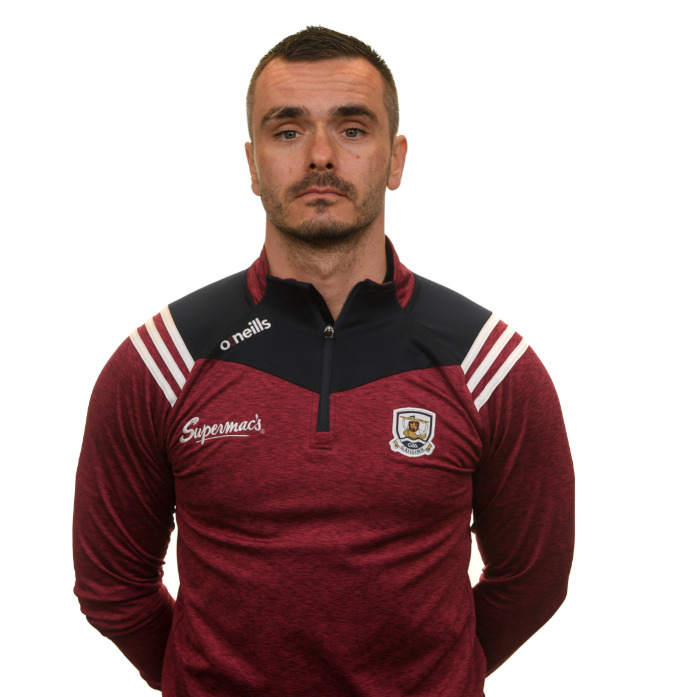ADVERTORIAL
FIRSTLY, by way of introduction, Lukasz Kirszenstein isn’t your ordinary run-of-the-mill strength and conditioning coach, but something of a living legend within hurling circles.
He was Tipperary’s strength and conditioning coach when they won the All-Ireland title in 2016, and was on board with Galway the following season when they got their hands on the Liam McCarthy Cup for the first time in 2017 years.
The Polish native is now at the Head of Athletic Development at Galway, so it’s fair to say he knows his onions, and he’s also the major driver behind the development of a popular app called Actimet, which has been used by a host of All-Ireland winners (Galway hurlers were the test drivers so to speak, but Corofin, Mourneabbey and the Galway camogs have also availed of its services).
Players use the app to record their various achievements in training – particular useful with collective training off the table – but it’s so much more than that and Kirszenstein explains what sets it apart from rival products.
“The app was developed as a result of frustration as other apps were too complicated for the end user. We wanted a simple efficient too that makes it as easy for players as possible, but also makes it easy for the typical coach as well, who mightn’t have a degree in sports science or strength and conditioning.
“It’s like a personal diary for players, they input their training data but there’s also a wellness score, which is basically a measure indicating how they’re responding to potential sources of stress in their lives, and that’s synched up with a portal for coaches so they can make use of the information.”
He continued: “It only takes players 15 seconds to capture their ‘wellness’, we try to keep it as simple and as accessible as possible, and I think that’s why we’re getting bang for the buck with the app.
“If players are finding it too difficult, it’s not going to work – we’re capturing fairly subjective data like how players are eating and sleeping, so it has be easily done so players aren’t clicking for the sake of clicking.”
The Galway hurlers, who lost out to Limerick in the semi-final of last year’s All-Ireland, basically had an injury-free season, and that’s something that Kirszenstein attributes in large part to the app.
“We didn’t have a single injury all season – hamstring, quad, calf you name it – the only hamstring we had was the semi-final against Limerick where unfortunately one of our biggest players, Cathal Mannion got his leg tangled and hurt his hamstring that way, it was a freak injury.
“Physios have access to the app as well, so if there’s any concerns, it was always a case of modifying or sitting out a session.
“So from our perspective, using the app has huge added value. It saves a lot on physio costs, it’s only 50 euros per month, and if you pay a discount it works out cheaper, I always ask clubs how much do you spend per year on physio costs – I can guarantee you that it’s definitely more than 400 euros a year because that’s the licence for a year.
Kirszenstein has been helping out intercounty teams for the last eight years, and he’s seen how hurling are underwent a massive transformation in that time.
Some traditionalists think that the game as suffered with players striking points from massive distances as a matter of routine, but Kirszenstein, who moved to Ireland from Poland in the mid-noughties says that tinkering with the rules isn’t necessarily a bright idea.
“The average mass of a hurling team has definitely increased, that’s for sure. Galway are a heavy team in terms of body weight, and so are Limerick, but teams are catching up.
“The culture of strength and conditioning has changed for the better – players’ lifestyles aren’t falling off a cliff when their season is over, which prevents injuries in the long-run – and it also has the collateral effect that players will be physically stronger.
“Pitches are also better, tactics have changed and some people say the ball is too light, but I think you have to be careful about changing things.
“It’s still a spectacular sport – it’s the best field game in the world in my opinion, and I’d be careful about messing with too many components of the game as I think it’s a very fragile environment. Also, if someone comes along and beats Limerick by playing a traditional game, people will say ‘we’ll run with that’ – it’s a train that comes with winning.”
There’s also a fear that Limerick have moved too far ahead of their rivals, and Kirszenstein makes the point that by no means has their success happened overnight.
“Limerick are a product of an academy system but people are very short-sighted in terms of saying ‘Limerick, what are they doing?!’
“The question is wrong – the question is what have they done in the last seven or eight years? It’s not just structured strength and conditioning, they’re running a holistic model looking at tactics, lifestyle, nutrition and looking at yourself outside of training.
“It makes them very complete human beings and helps them cope with the modern intercounty game, which can be a very competitive environment with competition every session.
“I can guarantee you it’s the same with the Dublin footballers – if they stopped training for a week in the middle of the championship they’d still beat most teams out there.”
Receive quality journalism wherever you are, on any device. Keep up to date from the comfort of your own home with a digital subscription.
Any time | Any place | Anywhere












